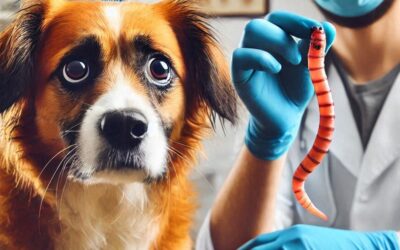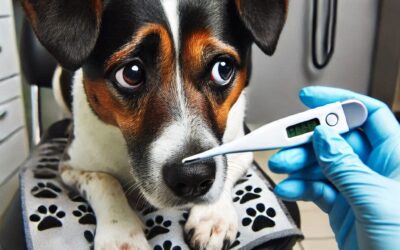A Guide to Caring for Your 20 Week Old Puppy: Everything You Need to Know
Table of Contents
Are you the proud owner of a 20 week old puppy? Congratulations! This is an exciting stage in your furry friend’s life, full of growth, energy, and lots of adorable moments. But as a responsible pet parent, it’s important to know how to properly care for your 20 week old puppy to ensure they stay healthy and happy. In this comprehensive guide, we will provide you with everything you need to know about caring for your four-legged companion at this stage of their life.
From nutrition and exercise to socialization, communication, and training, we’ll cover all the essential aspects of new puppy care. Discover the best diet for your pup’s growing needs and dog supplements. Learn how to maintain their hygiene, and understand the importance of regular veterinary check-ups. We’ll also delve into the importance of mental stimulation and socialization for your puppy’s development.
Whether you’re a first-time puppy parent or looking to refresh your knowledge, this guide is here to support you every step of the way. So, let’s embark on this exciting journey together and give your puppy 20 weeks the love and care they deserve.
Understanding the developmental milestones of a 20 week old puppy schedule
At 20 weeks old, your puppy is entering a crucial stage of development. Understanding their milestones can help you provide the appropriate care and support. By this age, most 20 weeks old puppy have finished teething, and their adult teeth have fully erupted. They are also more coordinated and agile, making it a great time to introduce more complex training exercises. Additionally, your puppy’s energy levels may be at their peak, so providing plenty of mental and physical stimulation is essential for their overall well-being.
It’s important to note that each puppy develops at their own pace with our 20 week puppy schedule. Some may be more advanced in certain areas, while others may take a bit longer to reach certain milestones. As a pet parent, it’s crucial to be patient and understanding as your puppy continues to grow and learn.
Feeding and Nutrition for a 20 Week Old Puppy
Proper dog nutrition is crucial for the healthy development of your 20 week old puppy. At this stage, their nutritional needs may differ from when they were younger. It’s important to consult with your veterinarian to determine the best diet for your pup’s specific breed, size, and individual needs.
A balanced diet should consist of high-quality puppy food that is specifically formulated for their age and breed. You can have the best dog supplements and treats here. Look for a food that contains the right balance of protein, carbohydrates, vitamins, and fats to support their growth and provide them with the necessary energy. It’s also important to follow the recommended feeding guidelines provided on the packaging, as overfeeding can lead to obesity and other health issues.
In addition to a nutritious diet, it’s crucial to provide your 20 weeks puppy with access to fresh, clean water at all times. This will help keep them hydrated and support their overall well-being. Remember to monitor their weight regularly and make any necessary adjustments to their feeding schedule or portion sizes as they continue to grow and develop.
Exercise and Physical Activity for a 20 Week Old Puppy
As your puppy grows, their exercise needs will also increase. Regular physical activity is essential for their overall health and well-being. Aim for a minimum of 30 minutes to an hour of exercise each day, depending on your puppy’s breed and energy levels.
Engaging in activities such as walks, play sessions, and interactive games can help burn off excess energy and prevent behavioral issues. It’s important to provide a variety of exercise options to keep your puppy mentally stimulated and physically fit. Consider incorporating activities such as obedience training, agility courses, or even swimming, depending on your puppy’s interests and abilities.
Remember to start slow and gradually increase the intensity and duration of exercise as your puppy builds stamina. Avoid overexertion, especially in hot weather, and always provide access to fresh water during and after physical activity.
Basic Training Tips for a 20 Week Old Puppy
Training is an essential part of raising a well-behaved and obedient dog. At 20 weeks old, your puppy is at the perfect age to start basic training exercises. Here are a few tips to get you started:
1. Positive Reinforcement: Use rewards such as treats, praise, and playtime to reinforce good behavior. Avoid punishment-based training methods, as these can have negative effects on your puppy’s development and trust in you as their owner.
2. Consistency: Establish a consistent routine for training sessions, and use clear, concise commands that your puppy can easily understand. Repetition and consistency are key to successful training.
3. Socialization: Expose your puppy to various environments, people, and other animals to help them become well-adjusted and confident. Puppy socialization classes can be a great way to introduce your pup to new experiences and help them develop proper social skills.
4. Patience: Remember that puppies have short attention spans and may not grasp commands immediately. Be patient and understanding, and celebrate small successes along the way.
Socialization and Behavior Management for a 20-Week-Old Puppy
Socialization plays a crucial role in shaping your puppy’s behavior and temperament. Exposing them to different people, animals, and environments from an early age can help prevent fear, anxiety, and aggression issues down the line. Here are some tips for effective socialization:
1. Positive Experiences: Ensure that your puppy has positive experiences with people and animals of all ages and sizes. Use treats and praise to reward calm and friendly behavior during social interactions.
2. Gradual Introductions: Introduce your puppy to new situations and environments gradually, starting with low-stress situations and gradually increasing the level of difficulty. This will help them build confidence and reduce the risk of overwhelming or frightening experiences.
3. Training Classes: Consider enrolling your puppy in a puppy socialization class or obedience training program. These classes provide structured environments for socializing and learning important skills under the guidance of experienced trainers.
4. Behavior Management: Teach your puppy basic commands such as sit, stay, and leave, to help manage their behavior in different situations. This will help them understand boundaries and make them more pleasant to be around.
Common Health Issues and Preventive Care for a 20-Week-Old Puppy
Maintaining your puppy’s health is crucial for their overall well-being. Regular veterinarian check-ups are essential at this stage to ensure your puppy is growing and developing properly. Here are some common health issues to be aware of and preventive care measures to consider:
1. Vaccinations: Ensure that your puppy is up to date on all necessary vaccinations to protect them against common diseases. Your veterinarian will provide you with a vaccination schedule tailored to your puppy’s needs.
2. Parasite Control: Regularly deworm your puppy and ensure they are on a flea and tick prevention program. Parasites can cause various health issues and discomfort for your puppy. Learn how to get rid of snow fleas.
3. Dental Care: Start a dental care routine early by brushing your puppy’s teeth regularly and providing appropriate dental chews or toys. This will help prevent dental disease and keep their teeth and gums healthy.
4. Spaying/Neutering: Discuss the appropriate time for spaying or neutering your puppy with your veterinarian. This procedure can help prevent certain health issues and unwanted behaviors.
5. Monitoring Overall Health: Keep an eye out for any changes in your puppy’s appetite, energy levels, coat condition, or bathroom habits. These can be indicators of underlying health problems, and it’s important to seek veterinary attention if you notice anything unusual.
Grooming and Hygiene for a 20-Week-Old Puppy
Proper grooming and hygiene are essential for your puppy’s comfort and overall health. Here are some dog grooming tips to keep in mind:
1. Brushing: Regularly brush your puppy’s coat to remove loose hair and prevent matting. The frequency will depend on your puppy’s breed and coat type. Use a brush that is suitable for their specific needs.
2. Bathing: Bathe your puppy as needed, using a gentle dog shampoo that is specifically formulated for puppies. Be sure to rinse thoroughly to remove any soap residue.
3. Nail Trimming: Keep your 20 weeks old puppy’s nails trimmed to a comfortable length. Overgrown nails can cause discomfort and difficulty walking. If you’re unsure how to trim your puppy’s nails, consult a professional groomer or your veterinarian.
4. Ear Cleaning: Check your puppy’s ears regularly for any signs of infection, wax buildup, or redness. Clean their ears with a veterinarian-approved ear cleaner and a cotton ball or pad, being careful not to insert anything into the ear canal.
5. Eye Care: Keep your puppy’s eyes clean by gently wiping away any discharge or debris with a damp cloth or veterinarian-approved eye wipes. If you notice excessive tearing or any signs of infection, consult your veterinarian.
Creating a Safe and Stimulating Environment for a 20 Week Old Puppy
Your puppy’s environment plays a crucial role in their overall well-being and development. Here are some tips for creating a safe and stimulating environment:
1. Puppy Proofing: Ensure that your home is safe for your curious puppy by removing any potential hazards such as toxic plants, small objects, or electrical cords. Use baby gates or crate training to restrict access to certain areas.
2. Chew Toys: Provide a variety of safe and durable chew toys to satisfy your puppy’s natural chewing instincts and help with teething. Avoid toys that can easily be swallowed or pose a choking hazard.
3. Enrichment Activities: Engage your puppy’s mind with interactive toys, puzzle games, and treat-dispensing toys. This will help prevent boredom and destructive behavior.
4. Comfort and Rest Areas: Set up comfortable and cozy areas where your 20 week puppy can rest and relax. Provide a soft bed or blanket in a quiet corner of your home.
5. Supervision: Always supervise your puppy, especially during the early stages of training and socialization. This will help prevent accidents and ensure their safety.
Conclusion: Celebrating Milestones and Continuing the Journey of Puppyhood
Congratulations on reaching this milestone with your 20 week old puppy schedule! By providing them with proper care, nutrition, training, and socialization, you are setting them up for a happy and healthy life. Remember, each puppy is unique and may progress at their own pace, so be patient and enjoy the journey together. Celebrate every milestone along the way, and continue to provide your furry friend with the love and care they deserve. Happy puppy parenting!
Creating a safe and stimulating environment is essential for your 20 week old puppy’s well-being. Puppies are naturally curious and can get into mischief if their environment is not properly puppy-proofed. Here are some tips to ensure your puppy’s safety:
– Remove any hazardous objects or toxic substances from your puppy’s reach.
– Secure electrical cords and outlets to prevent chewing or accidents.
– Use baby gates or barriers to restrict access to certain areas of your home.
– Provide your puppy with a comfortable and cozy sleeping area away from drafts.
– Provide plenty of toys and interactive puzzles to keep your 20 week puppy schedule mentally stimulated.
– Rotate toys regularly to prevent boredom and keep their interest.
Remember, supervision is key during this stage of your puppy’s life. Keep a close eye on them to ensure they are safe and not engaging in any potentially dangerous behaviors. Gradually give them more freedom as they demonstrate good behavior and understanding of boundaries.







